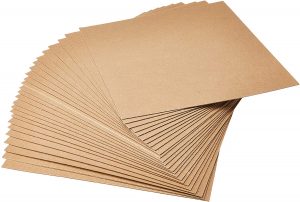
The Slovak Republic has always been a reliable transit country for Russian gas to the West through Ukraine, and it is interested in maintaining this transit through Ukraine, said Prime Minister of Slovakia Eduard Heger.
“As for the Nord Stream 2 Project, it is not in the hands of Slovakia to decide. Slovakia has always been a reliable transit country for the Russian gas to the West through the territory of Ukraine and we are definitely interested in keeping this gas transit through Ukraine. We believe the transit contract between Russia and Ukraine will be fulfilled further on,” Heger said in an exclusive interview with Interfax-Ukraine.

The Ukrainian authorities have offered Israeli Prime Minister Benjamin Netanyahu to become a mediator during the negotiations between Kyiv and Moscow, Ukrainian Ambassador to Israel Yevhen Korniychuk said on the Israeli TV channel i24NEWS.
The diplomat explained that this decision is due to the fact that Netanyahu has good relations with both President of Ukraine Volodymyr Zelensky and President of the Russian Federation Vladimir Putin.
“I am glad to report that the prime minister did not say no. He said that he would try to do everything in his power. We are glad that Mr. Netanyahu did not reject this mission, but on the contrary, he showed his interest and willingness to help,” noted Korniychuk.
As reported earlier, Israeli Prime Minister Benjamin Netanyahu called for the expansion of friendship and cooperation with Ukraine.

Ukraine in January-March 2021 imported 1.812 million tonnes of petroleum products (according to foreign economic activity code 2710: petrol, diesel fuel, fuel oil, jet fuel, etc.), which is 10.4% more year-over-year (1.642 million tonnes). According to the State Customs Service, petroleum products were imported to the tune of $894.99 million, which is 8.2% less than in January-March 2020 ($ 975.061 million).
Fuel was imported from Belarus for $416.163 million (the share is 46.5%), Russia for $283.626 million (31.69%), Lithuania for $85.767 million (9.58%), other countries for $109.434 million (12.23%).
In addition, Ukraine exported 113,426 tonnes (49.4% compared to January-March 2020) of petroleum products for a total of $53.49 million (17.4%). The cost of fuel delivered to counterparties from Turkey amounted to $12.338 million, the Czech Republic some $11.778 million, Latvia some $10.936 million and other countries to $18.438 million.

Ukraine in January-March 2021 increased imports of coal and anthracite (foreign economic activity code 2701) by 18.6% (by 813,072 tonnes) compared to the same period in 2020, to 5.194 million tonnes. According to the State Customs Service, coal was imported for $474.508 million, which is 0.4% more than in January-March 2020 ($472.525 million).
The Russia supplied coal worth $286.862 million (the share of imported coal is 60.45%), the United States for $107.046 million (22.56%), Kazakhstan for $56.851 million (11.98%), other countries for $23.75 million ( 5.01%).
Ukraine’s export of coal over the first three months of 2021 amounted to 204 tonnes for $25,000, while in the first quarter of 2020 it was not exported. In particular, export to Hungary was worth $11,000, Belarus some $7,000 and Bulgaria some $7,000.

The Cabinet of Ministers of Ukraine intends to terminate the agreement with the government of the Russian Federation on cooperation in the field of tourism.
The corresponding draft decision was published in the agenda of the government meeting on Wednesday.
This agreement was signed in Kyiv on July 16, 1999.
It is noted that this decision will be made due to the fact that due to Russia’s armed aggression against Ukraine, actual cooperation in this area has been suspended, and there are no prospects for establishing such cooperation in the future.

The Interdepartmental Commission on International Trade (ICIT) has initiated an anti-dumping investigation into the import of wood chipboard originating from the Republic of Belarus and the Russian Federation to Ukraine.
The decision of the commission made on February 16, 2021 on the initiation of an investigation comes into force from the moment of its publication, indicated in the report published in the Uriadovy Kurier newspaper dated February 20.
According to the report, the commission received a corresponding complaint from Svisspan Limited LLC (Kostopil, Rivne region)
According to the applicant, during the study period (H2 2017 – H1 2020), the share of dumped chipboard imports from Belarus and the Russian Federation exceeded half of the total imports, while the share of consumption ranged from 6.8% to 12.29% , in relation to production – from 5.03% to 11.72%. At the same time, the prices of dumped imports were significantly lower than the applicant’s price level for the entire study period and below the cost price level in H2 2019 – H1 2020.
Analysis of the dynamics of the main indicators of the applicant’s financial and economic activities during the study period showed a decrease in sales volumes, a loss of market share with an increase in consumption in the domestic market, a decrease in production volumes and deterioration in other financial indicators.
Having considered the complaint, the ICIT came to the conclusion that the import of chipboard from Belarus and the Russian Federation to Ukraine could be carried out at dumping prices and the level of the dumping margin cannot be considered minimal, and the volume of imports cannot be considered insignificant. The commission also said that the chipboard originating from these countries into Ukraine was imported in such volumes and on such conditions that it may harm the national manufacturer.
The investigation concerns wood chipboard, with the exception of chipboard panels covered with decorative laminated plastic, which are classified according to the Ukrainian Foreign Economic Activity Commodity Nomenclature as 4410 10 11 10 00, 4410 11 30 00 and 4410 11 90 00.
The Ministry for Development of Economy, Trade and Agriculture has been charged with carrying out the anti-dumping investigation. Interested parties are registered within 30 days.
Swisspan Limited is one of the leaders in the production of furniture boards in Ukraine, specializing in the production of sanded and laminated chipboards of its own trademark Swisspan by Sorbes. The company was founded in 2003 by the Swiss group Sorbes AG and, in addition to Swisspan Limited, owns LK Interplyt Nadvirna in Ivano-Frankivsk region, as well as the Repo Vabrikud plant in Estonia.